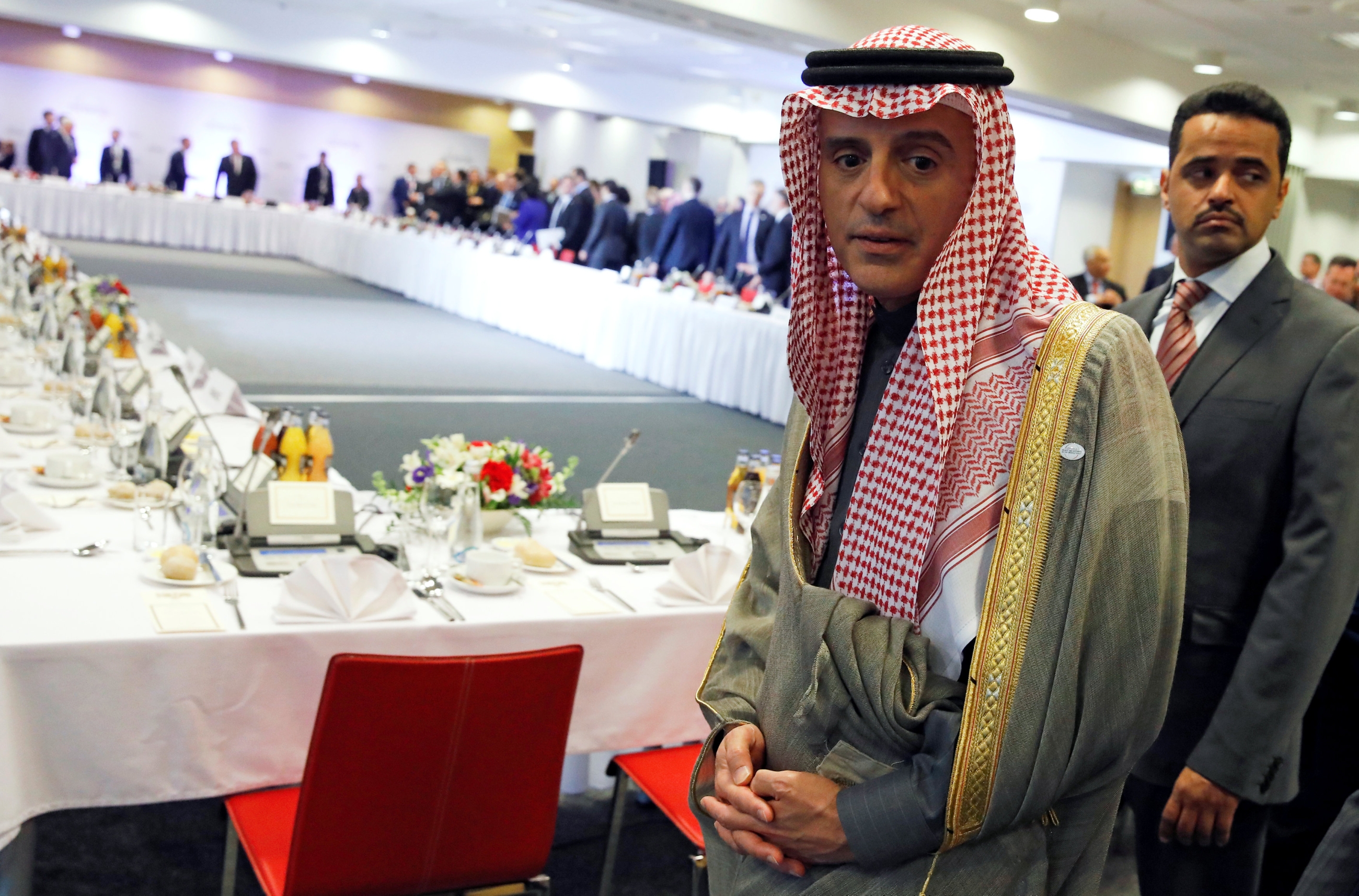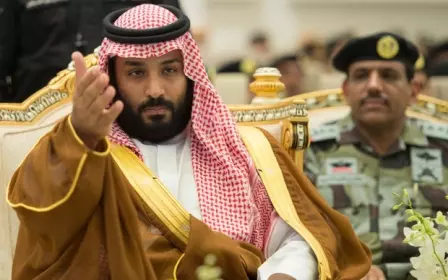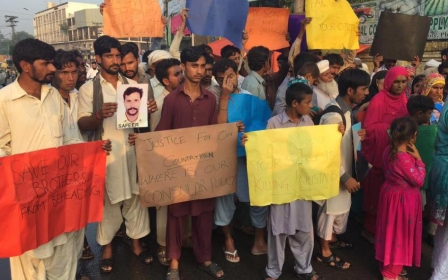'Stop lecturing us': Saudi diplomat dismisses human rights concerns by EU lawmakers

Top Saudi diplomat Adel al-Jubeir has rejected inquiries by EU lawmakers about the state of human rights in the kingdom, sternly telling members of the European Parliament that Riyadh does not "accept lectures" about its legal system.
Quizzed by several MEPs about the detention of women's rights advocates, the murder of journalist Jamal Khashoggi and the ongoing imprisonment of liberal blogger Raif Badawi, the Saudi minister of state for foreign affairs dismissed the questions, stressing that the kingdom has an independent legal system that handles such matters.
'You have one of the worst records in the world, and if we are to treat you as an ally and a friend, then that has to change,'
- Martin Horwood, MEP
"Stop lecturing and start working with us," Jubeir told the European Parliament on Tuesday. "We have a court system. The court system is independent, and we do not allow anyone to question how our court system operates with all due respect.
"We are a sovereign country; we are not a banana republic, and we will respect the decisions to our court system."
Jubeir had faced a barrage of questions over human rights issues in Saudi Arabia, with many legislators raising the case of Badawi, who received the European Parliament's Sakharov Prize for Freedom of Thought in 2015.
New MEE newsletter: Jerusalem Dispatch
Sign up to get the latest insights and analysis on Israel-Palestine, alongside Turkey Unpacked and other MEE newsletters
The Badawi case
Badawi was arrested in 2012 over charges of apostasy after setting up a website to discuss social issues in the kingdom. In 2014, he was sentenced to 10 years in jail and 1,000 lashes.
Rights groups have continued to call for his release.
"Blogging is not a crime," Amnesty International said in 2018. "The harsh punishment of Raif Badawi shows the Saudi Arabian authorities’ blatant contempt for freedom of expression and the extent to which they are willing to go to crush all forms of dissent."
Still, Jubeir cited the kingdom's judicial system when addressing concerns about the blogger on Tuesday.
"Raif Badawi's case is in the legal system, and the legal system is independent just like it is in your countries," the Saudi diplomat said. "It's a sovereign decision. The courts will have to decide what happens going forward."
Saudi Arabia is an absolute monarchy, where senior royals have near total control over all the branches of the state as well as the power to pardon suspects of serious crimes.
The kingdom's legal system faced overwhelming criticism late last year after it acquitted top aides of Crown Prince Mohammed bin Salman of the murder of Khashoggi. The verdict also sentenced five people to death over involvement in the killing.
The Washington Post and Middle East Eye columnist was killed and dismembered by Saudi government agents at the kingdom's consulate in Istanbul in October 2018.
Riyadh maintains that the murder was the result of an unauthorised operation that happened without the knowledge of bin Salman and other top officials.
Legislators confront Jubeir
Jubeir reiterated that point on Tuesday, comparing the assassination to the abuse of Iraqi prisoners by American soldiers at Abu Ghraib prison after the 2003 US-led invasion.
In his opening remark, the Saudi diplomat painted a rosy picture of Saudi Arabia, where he said women are gaining equality, and the kingdom's rulers are implementing liberal programmes to modernise society.
But MEPs were quick to point out that many women's rights activists, including Loujain al-Hathloul, remain in prison today. Hathloul had been subjected to torture and sexual harassment while in jail, according to Human Rights Watch.
British MEP Martin Horwood was particularly austere when he confronted Jubeir about the kingdom's human rights record, citing the jailed women's rights defenders, imprisonment of intellectuals and the record number of executions in the kingdom in 2019.
According to the advocacy group Reprieve, last year Saudi Arabia executed 184 people, including 90 foreign nationals and three suspects who were minors at the time of their alleged offences.
"Gentleman, if you want to have people look at Saudi Arabia and see a modern, inclusive, moderate society, then you simply will be disappointed; that won't happen until Saudi Arabia tackles these flagrant abuses of human rights," Horwood told the Saudi diplomat.
"You have one of the worst records in the world, and if we are to treat you as an ally and a friend, then that has to change."
Middle East Eye delivers independent and unrivalled coverage and analysis of the Middle East, North Africa and beyond. To learn more about republishing this content and the associated fees, please fill out this form. More about MEE can be found here.






